Leadership Learning Cohorts and Communities
For many years, Bob was the Director of the Georgetown University Organization Development Program – a 9-month, 3-day/month executive format program. At the conclusion of the program, participants’ spouses would routinely say: ‘what have you done to my spouse? They’re really different. Something profound happened.’ We realized that they had taken an important reflective journey, exploring how they see the world and themselves, learning systems lenses for understanding group and organizational behavior, and explored how systems change and people grown and learn. In the process it shifted how they understood themselves and interacted with the world around them – in some important way they had been transformed.
As we began to work with leaders in the context of their work, we used the wisdom of this approach as the foundation for our Leadership in Action methodology – an architecture for creating powerful leadership learning experiences. We have hundreds of graduates from these programs in a range of organizational contexts over the past dozen years.
- Senior Leadership Cohort – US Army, Aberdeen Proving Ground – in partnership with US Office of Personnel Management – is in its 5th year, has 150 graduates and regularly receives equivalency credit for Senior Service Colleges.
- Director Leadership Program – teams of Directors from four prominent professional societies met 2 days per month for six months, to learn to approach their leadership roles more strategically.
- Gettysburg College Leadership in Action – 50 Directors from across the campus participated in two separate yearly cohorts of 25. One VP described the effort as ‘our competitive weapon’ that knit the campus together, forged strong relationships across the middle of the organization and enhanced collaboration measurably.
Our Cohort Learning Philosophy
All of our programs use a wide range of instructional strategies and adhere to adult learning principles that balance experience, interaction, reflection and application. We create highly engaging learning approaches using simulations, case studies and experiential activities; facilitate debriefing dialogues that explore key learnings from the activity. Our approach seeks to surface what people already know, provide a learning experience, draw out new learning, explore gaps in knowledge and perceptions and identify practices and actions participants can take to apply what they’ve learned.
For US Army Scientists and engineers on the executive track we built the program on the following OPM Leadership competencies.
- Strategic Thinking
- Partnering
- Vision
- Human Capital Management
- Conflict Management
- Influencing/Negotiating
- Team Building & Development
- Developing Others
- External Awareness
- Political Savvy
- Decisiveness
- Interpersonal Skills
- Innovation/Creativity
Typical Cohort Program Learning Strategies
The power of a cohort program with an action learning focus is that it meets over time, engages real organizational issues as a field for learning, and weaves multiple learning elements into a coherent whole. The elements below are those that we typically use.
- Class Sessions in a Cohort Community
- Action Learning Projects
- On the Desk Projects
- Personal Energy Management
- Executive Coaching
- Journaling
- Highly Experiential Activities and Simulations

